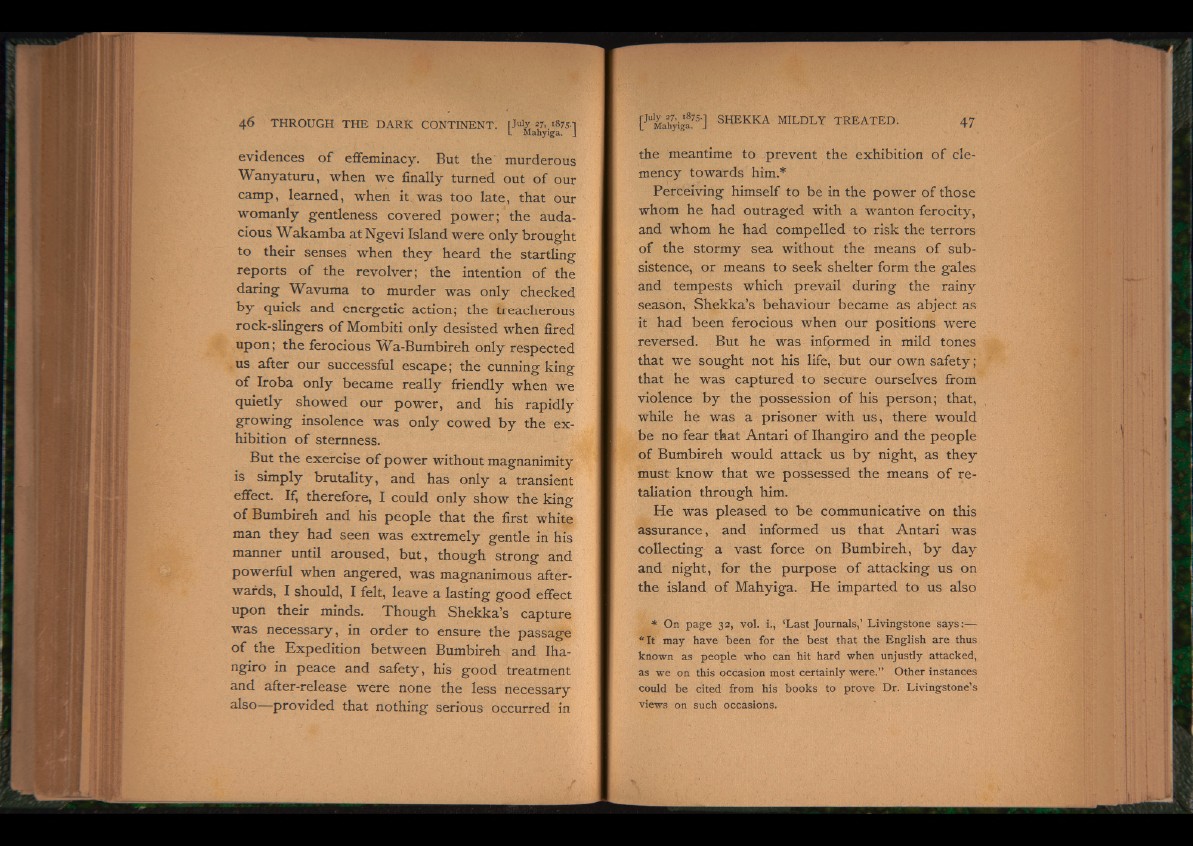
evidences o f effeminacy. But the murderous
Wanyaturu, when we finally turned out o f our
camp, learned, when it was too late, that our
womanly gentleness covered power; the audacious
Wakamba atNgevi Island were only brought
to their senses when they heard the startling
reports o f the revolver; the intention o f the
daring Wavuma to murder was only checked
b y quick and energetic action; the treacherous
rock-slingers o f Mombiti only desisted when fired
upon; the ferocious Wa-Bumbireh only respected
us after our successful escape; the cunning king
o f Iroba only became really friendly when we
quietly showed our power, and his rapidly
growing insolence was only cowed b y the e x hibition
o f sternness.
But the exercise o f power without magnanimity
is simply brutality, and has only a transient
effect. If, therefore, I could only show the king
o f Bumbireh and his people that the first white
man th ey had seen was extremely gentle in his
manner until aroused, but, though strong and
powerful when angered, was magnanimous afterwards,
I should, I felt, leave a lasting good effect
upon their minds. Though Shekka’s capture
was necessary, in order to ensure the passage
o f the Expedition between Bumbireh and Iha-
ngiro in peace and safety, his g o od treatment
and after-release were none the less necessary
also— provided that nothing serious occurred in
the meantime to prevent the exhibition o f clemency
towards him.*
Perceiving himself to be in the power o f those
whom he had outraged with a wanton ferocity,
and whom he had compelled to risk the terrors
o f the stormy sea without the means o f subsistence,
or means to seek shelter form the gales
and tempests which prevail during the rainy
season, Shekka’s behaviour became as abject as
it had been ferocious when our positions were
reversed. But he was informed in mild tones
that we sought not his life, but our own s a fe ty ;
that he was captured to secure ourselves from
violence b y the possession o f his person; that,
while he was a prisoner with us, there would
be no fear that Antari o f Ihangiro and the people
o f Bumbireh would attack us b y night, as they
must know that we possessed the means o f retaliation
through him.
He was pleased to be communicative on this
assurance, and informed us that Antari was
collecting a vast force on Bumbireh, b y day
and night, for the purpose o f attacking us on
the island o f Mahyiga. He imparted to us also
* On page 32, vol. i., ‘Last Journals,’ Livingstone says:—
“ It may have been for the best that the English are thus
known as people who can hit hard when unjustly attacked,
as we on this occasion most certainly were.” Other instances
could be cited from his books to prove Dr. Livingstone’s
views on such occasions.